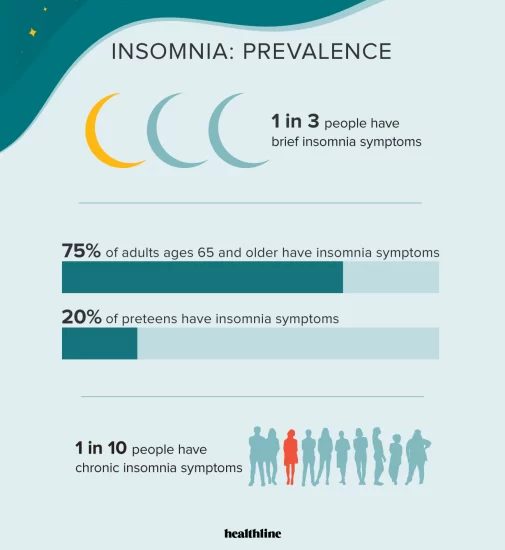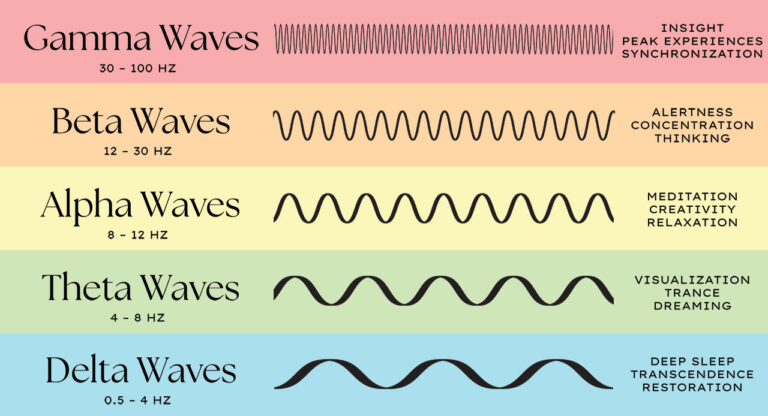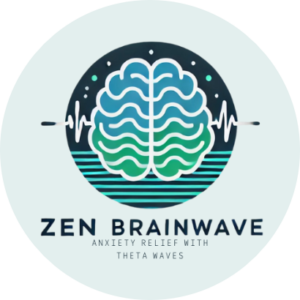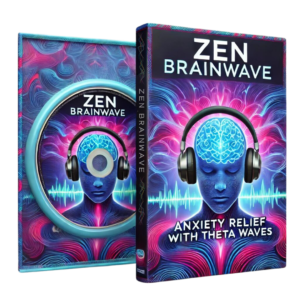Advertorial
HEALTH & WELLNESS
By Robert Matthew Miller
July 12, 2024, at 2:25 p.m. – updated an hour ago
Zen Brainwave: The Role Of BrainWaves in Restful Nights

In the hustle of our modern lives, sleep often takes a backstage seat—a quiet hero overshadowed by productivity, screens, and endless to-do lists. Yet, within those nocturnal hours lies a treasure trove of well-being. Sleep isn’t merely a pause button; it’s a symphony of repair, a dance of memory consolidation, and a fortress against stress. When we honor our slumber, we gift our bodies resilience, clarity, and emotional balance.
Millions of people suffer silently from insomnia, facing sleepless nights, daytime fatigue, and a diminished quality of life.
These issues not only cause physical discomfort but also affect mental and emotional health. Studies indicate that about 30% of adults experience symptoms of insomnia, with 10% suffering from chronic insomnia.
According to a report by the Center for Disease Control and Prevention (CDC), in 2020, 8.4% of adults in the United States took sleep medication either every day or most days a month prior the interview to help them fall or stay asleep.
Comparing the CDC reports from 2010 and 2020, there has been a noticeable increase in the use of sleep medications among U.S. adults, the percentage of adults using sleep medications has more than doubled, from 4% in 2010 to 8.4% in 2020.
However, these solutions often come with a range of side effects. Prescription sleep aids can cause dizziness, headaches, and even sleep-related behaviors such as driving or eating while not fully awake. Over-the-counter options may lead to drowsiness, dry mouth, and blurred vision. Even natural supplements like Melatonin can result in headaches and nausea.
Especially in older adults, long-term use of sleeping pills can increase the risk of falls, fractures, and accidents due to lingering drowsiness and impaired coordination. Given these potential drawbacks, we decided to test a product in the market called Zen BrainWave.
While researching for this article, we discovered that many of our team members were already familiar with the product. This prompted us to reach out to the Zen BrainWave team for a brief interview. Additionally, we gathered testimonials from users to understand their experiences and results.
Given that brainwaves can be quite novel, we highly recommend watching this concise 1-minute video. It provides a fundamental overview of how brain waves impact not only your sleep but also various aspects of your daily life.

Click here to see complete video, if you would like to know more
We had the chance to interview one of the creators of Zen BrainWave. Check out how it went:
Thank you for joining us today. Can you start by telling us a bit about Zen BrainWave?
Absolutely! Zen BrainWave is a cutting-edge solution designed to improve sleep quality by utilizing brainwave technology to influence brain activity patterns.
That sounds fascinating. Why did you choose to develop a new technique to improve insomnia?
We noticed that many existing sleep aids come with significant side effects and often don’t address the root causes of insomnia. Our goal was to create a non-invasive, natural solution that could help people achieve better sleep without the drawbacks of traditional medications.
Brainwave studies have been around for quite some time. Can you tell us more about the history of brainwave research and how it has influenced your product?
Certainly! Brainwave studies began in the early 20th century, with the discovery of alpha waves by Hans Berger in 1924. Since then, extensive research has been conducted on different types of brainwaves and their impact on various mental states. This rich history of research has provided a solid foundation for developing technologies like Zen BrainWave, which harnesses these insights to improve sleep quality.
What kind of feedback have you received from users so far?
The feedback has been overwhelmingly positive. Many users report significant improvements in their sleep quality and overall well-being. They appreciate the natural approach and the absence of side effects commonly associated with other sleep aids.

To gain a deeper understanding of Zen BrainWave’s impact, we reached out to several users who have incorporated this innovative product into their nightly routines. Their firsthand experiences provide valuable insights into the effectiveness of Zen BrainWave in improving sleep quality. Here are some of their testimonials:




Zen BrainWave offers an innovative solution for improving insomnia by utilizing brainwave technology to positively influence brain activity patterns, which won’t add any artificial chemical to the body preventing most of known sleep aid drugs side effects.
If, like us, you are surprised and impressed with the efficacy of this novel technique to improve insomnia, we recommend you check their website for more information.
References:
Healthline. (n.d.). Insomnia: Facts and Stats. Retrieved from https://www.healthline.com/health/insomnia/infographic-facts-stats-on-insomnia
Centers for Disease Control and Prevention. (2011). Prescription Sleep Aid Use Among Adults: United States, 2005–2010. NCHS Data Brief No. 127. Retrieved from https://www.cdc.gov/nchs/data/databriefs/db127.pdf
Centers for Disease Control and Prevention. (2023). Sleep Medication Use in the United States: 2020. NCHS Data Brief No. 462. Retrieved from https://www.cdc.gov/nchs/data/databriefs/db462.pdf
- WebMD. (2023). Understanding the Side Effects of Sleeping Pills. Retrieved from https://www.webmd.com/sleep-disorders/understanding-the-side-effects-of-sleeping-pills

